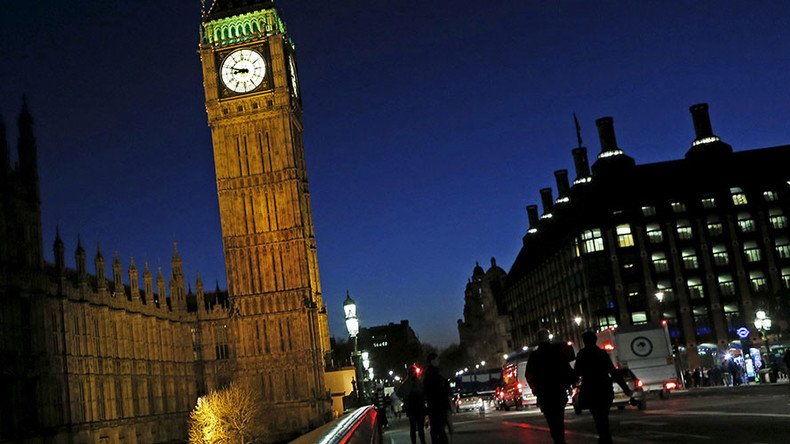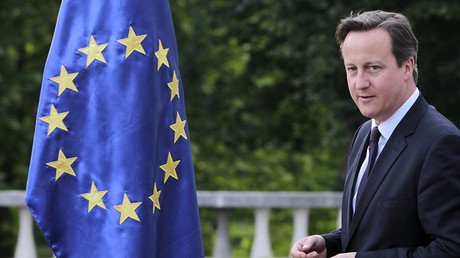To Brexit, or not to Brexit, that is Britain's question: Part I

Like many fellow Brits, I’m struggling with how to vote on referendum day. In or out? It sounds such a simple question, but it really isn’t. Even agreeing on how the referendum question should be worded was a convoluted affair.
British voters are being subjected to a daily dose of dire warnings from both pro and anti-camps. Despite those, I confidently predict that the sun will still rise on Britain after the referendum ballot, whatever the people decide. If the vote is to remain, I suspect there will be a “put up and shut up” attitude from the Europhiles and indeed from the rest of Europe.
If the country votes to leave the bloc, a period of economic punishment of some kind will follow, but it won’t last too long because, ultimately, nobody wants to lose the 65 million potential paying customers the British population represents, whether it’s part of the EU or not.
The essence of what the EU aspired to be was indeed noble. In the aftermath of WW2, Europe was reeling from death and destruction and politicians were desperate to find a means to ensure that the continent could never again descend into such devastating conflict. So, just 12 short years after the war, the fledgling European Economic Community was born, with the original six nations signing the Treaty of Rome. That’s the noble part. The subsequent reality is that, as more countries join (now 28, with others waiting in line), the more cumbersome it becomes.
It’s been conveniently forgotten that, for two decades, France consistently vetoed not just British membership, but even allowing Britain to apply. De Gaulle was convinced, and spoke eloquently in support of his conviction, that British values and traditions were simply not compatible with the European vision. And all these years later, his argument is again at the heart of the ‘BREXIT’ issue.
Perhaps the most graphic, and ridiculous example of a failing bureaucracy is the EU’s farcical “traveling circus”. When the EU was still young, France felt somewhat aggrieved and left-out when Brussels was chosen to host the EU Parliament. As a concession, it was agreed that, once a month, Europe’s MEPs would move to Strasbourg where a second parliament building would be constructed.
For four days every month, tons of papers are packed in plastic cases and driven the 400 kilometers from one parliament building to the other. Two dedicated express trains are also chartered each month to ferry people between the cities and back again. No one else is allowed on them, just MEPs and EU staff. France consistently blocks any move to change the arrangement, which is enshrined in a 1999 treaty. Estimates of the cost of the exercise vary between €300 and €400 million per year.
There can be no sane reason why a large union of apparently civilized nations cannot agree on a single meeting place and stop wasting so much money on this ridiculous monthly parade between cities. The impossibility of getting all member states to address such a simple issue and reach a “once and for all” conclusion about where to meet is preposterous, particularly given the cost, to say nothing of the carbon footprint. If not for the money it might be seen as quaint but the truth is, it’s a very real example of all that is wrong with the reality of what the EU has become.
If the collective representatives of 28 nations are unable to see or address such folly, what chance is there for other important decisions? Issues are simply whittled and watered down to the lowest commonly acceptable denominator until all that remains are the bland and toothless vestiges of what may once have been good ideas, diluted by negotiation to remove anything contentious that might have provoked individual members to exercise their veto.
In the egalitarian spirit of the EU, the presidency rotates between all member countries every six months. Genius! Once every 14 years, each country gets to be in charge! That, of course, is way too short a time to actually achieve anything given the cumbersome decision-making process that pervades the Union. Cynics might suggest that the last thing the architects of the EU ever wanted was for the presidency to actually do anything and so designed a system to ensure that it couldn’t. Actually ‘doing stuff’ is exclusively in the hands of the Commission, an interesting bunch of men and women who wield enormous power within Europe, despite being unelected. They are though appointed by elected MEPs making it a democratic process, well, one of them is, the Commission President. He or she then appoints the others, all 27 of them, one from each EU country. That doesn’t sound much like democracy to me!
I remember the 1975 referendum, the last time the British public was consulted on Europe. The polling booth was in the church near my school. Back then it was the EEC (European Economic Community), popularly known as the “Common Market”. I was too young to vote and had no real idea what it was about. The “Common Market” was something I heard grown-ups talk about and it sounded terribly important but very dull. In that sense at least, nothing has changed! It’s still important, and still dull!
As I later came to understand, the common market, or EEC, was like a club within which, member countries agreed to allow people, money and goods to travel freely across borders. In essence, your people and stuff can cross our border, and we can cross yours! Great! Marvelous idea, of course it involves a few mutual assurances; like agreeing upon common standards to ensure a level playing field. Fair enough, let’s draw up a set of standards that we all conform to! The theory of course is that trade and commerce are much more powerful ties than mere treaties and that such close cooperation, on economic and social levels, eliminates the chances of another conflict ever flaring up in Europe.
Things though didn’t go quite according to plan. Firstly, the movement of goods, people and money between countries (surprise, surprise!) wasn’t equal. Some countries found themselves selling more of certain commodities than their partners, more people (and money) moved one way than the other. Though entirely predictable, this was considered prejudicial; For example, French farmers, who were widely seen as old fashioned and inefficient, complained bitterly that they were facing unfair competition. Something had to be done to make things “fairer”. Controls were needed. Now, alongside the mutually agreed standards, you have mutually agreed controls to regulate and equalize the flow of goods. In simple terms, “you buy X tonnes of our apples, and we by Y tonnes of yours” became a legal obligation that extended way beyond fruit! Doesn’t the imposition of legal obligations to buy or sell defeat the very idea of free trade?
With such controls, limits and quotas applying to 28 countries, you soon find that you need a fairly beefy bureaucracy to oversee it all, then you find yourself paying less efficient producers to help them meet, or stop them exceeding, targets and quotas. There have been times when farmers have actually been paid to produce nothing, just to “regulate” the market. These artificial controls caused Europe’s infamous wine lakes and butter mountains after the EEC (as it still was) bought surplus stock either to artificially control prices or just so that the producer would have someone to sell it to.
That’s not healthy trade and it represents terrible use of taxpayer’s money, it’s just plain bad economics.
In Maastricht, 1992, the EEC morphed into the EU. This worried many and cheered some because it was starting to resemble a ‘United States of Europe’. The ‘F word’ began to be whispered; was it a move towards a Federal Europe or just a natural consolidation? F word fears were further strengthened with the advent of the single European currency, “how can such different types of national economy all operate with the same currency?” cried the critics. “How can they not?” replied the supporters!
The long-planned EU currency was first referred to as the EMU, or European Monetary Unit. Personally I quite liked the idea of paying for stuff with Emus but sadly they decided to call it the Euro instead. Britain would have nothing to do with it, choosing to stick with the tried, tested, dependable and by then, metric, pound!
The leading euro economies had a vested interest, both would benefit from joining forces with a few weaker economies so they could trade from a less highly valued currency, making their exports much more competitive internationally, with Germany the main beneficiary. The Deutschmark was very strong, but with the euro, parity with the dollar being the plan, all that desirable German engineering could suddenly be sold to the world from a more competitive base, without actually reducing prices!
David Watson, for RT
The statements, views and opinions expressed in this column are solely those of the author and do not necessarily represent those of RT.














